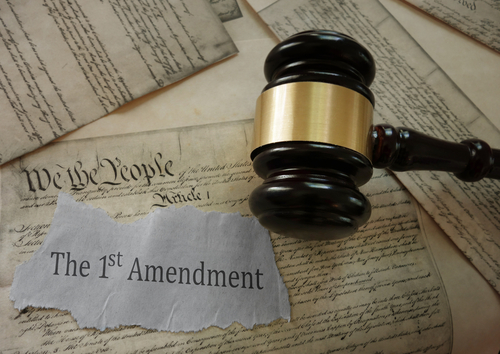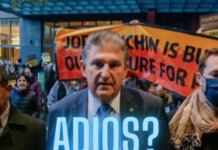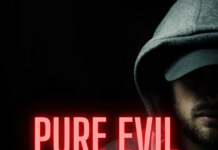
Humor dies in court.
Jokes that satirize or parody enterprises often end in trademarks suits or other litigation.
Jack Daniel’s Properties Inc. v. VIP Products LLC might have a similar audience.
The Supreme Court accepted a case over a dog chew toy shaped like a Jack Daniel’s bottle. VIP defended the toy as protected expression, but the distiller wants the Supreme Court to rule parody trademark breaches.
JUST IN: Whisky, dog toys… and trademark law.
SCOTUS has agreed to hear a dispute between Jack Daniel's and a company that makes squeaking "Bad Spaniels" dog toys. The case will have implications for the tension between parody & intellectual property. https://t.co/OmR3rimMCH pic.twitter.com/aegop8lb83
— SCOTUSblog (@SCOTUSblog) November 21, 2022
Are Jokes Now Illegal?
Anthony Novak was charged with creating a spoof of his local police department’s website. He was charged with (and eventually acquitted of) a crime of using a computer to “disrupt” police services.
The Onion submitted a spoof brief to promote parody.
The Onion often publishes amusing fake news articles and submitted a brief as the self-described “world’s premier news newspaper” with “universally adored coverage” and as the “most powerful and influential institution in human history.”
The Onion told the court that its 350,000 full- and part-time employees “maintain a high level of journalism.” “It owns and operates most of the world’s intercontinental shipping lines, leads on deforestation and mineral extraction, and proudly experiments millions of animals every day.” It showed the power of satire to convey legal and political points.
The court hasn’t decided whether to consider the Novak case, but it accepted Jack Daniel’s. The distiller sued VIP for their “Bad Spaniels” squeaking toy.
The toy is styled like a whiskey bottle and says, “Bad Spaniels, the Old No. 2, on your Tennessee Carpet.” On the backside, it says the product isn’t linked with Jack Daniel’s.

Jack Daniel’s Says This Would ‘Mislead’ Customers
The company said the spoof would mislead customers. The Ninth Circuit overturned the lower court’s ruling in favor of Jack Daniel’s. The chew toy’s “novel expressive content” was deemed First Amendment-protected.
Satire and parody have been important in political dialogue since ancient Greece, according to the Supreme Court. Hustler Magazine v. Falwell, decided in 1988, shielded an inflammatory caricature of Rev. Jerry Falwell from legal responsibility under the First Amendment.
Chew toys aren’t “slashing and one-sided” political commentary like the Hustler case. The distiller claims that using any common picture in a parody or satire is illegal, even though no reasonable person would mistake the goods.
The Ninth Circuit’s free-speech rule for trademark claims where a firm asserts a product “tarnishes” its image is in question. The Ninth Circuit ruled that “referential and cultural symbol criteria” must be “above zero” for First Amendment protection.
No joke, Bad Spaniels is going to the U.S. Supreme Court. This case was brought by Jack Daniels against the company of a squeaking dog toy and concerns how we treat parody under trademark law. 🧵 https://t.co/dwZPXQZThn
— NeerMcD.eth 🚀 (@NeerMcD) November 21, 2022
Why This Matters
The court’s term might be the most important parody/satire docket in decades. It may be less protective of trademarks (like Jack Daniel’s) than criminal concerns (like Novak). This is more than a dog chew toy; it will affect artistic expression by employing cultural imagery or allusions.
This dog toy was a satire and disclaimed any link to the distillery; it doesn’t confuse customers or degrade the Jack Daniel’s brand.
A lack of wit, not clarity, motivated this case, but if this chew toy is deemed to be a trademark infringement, the court may bite into the First Amendment.















